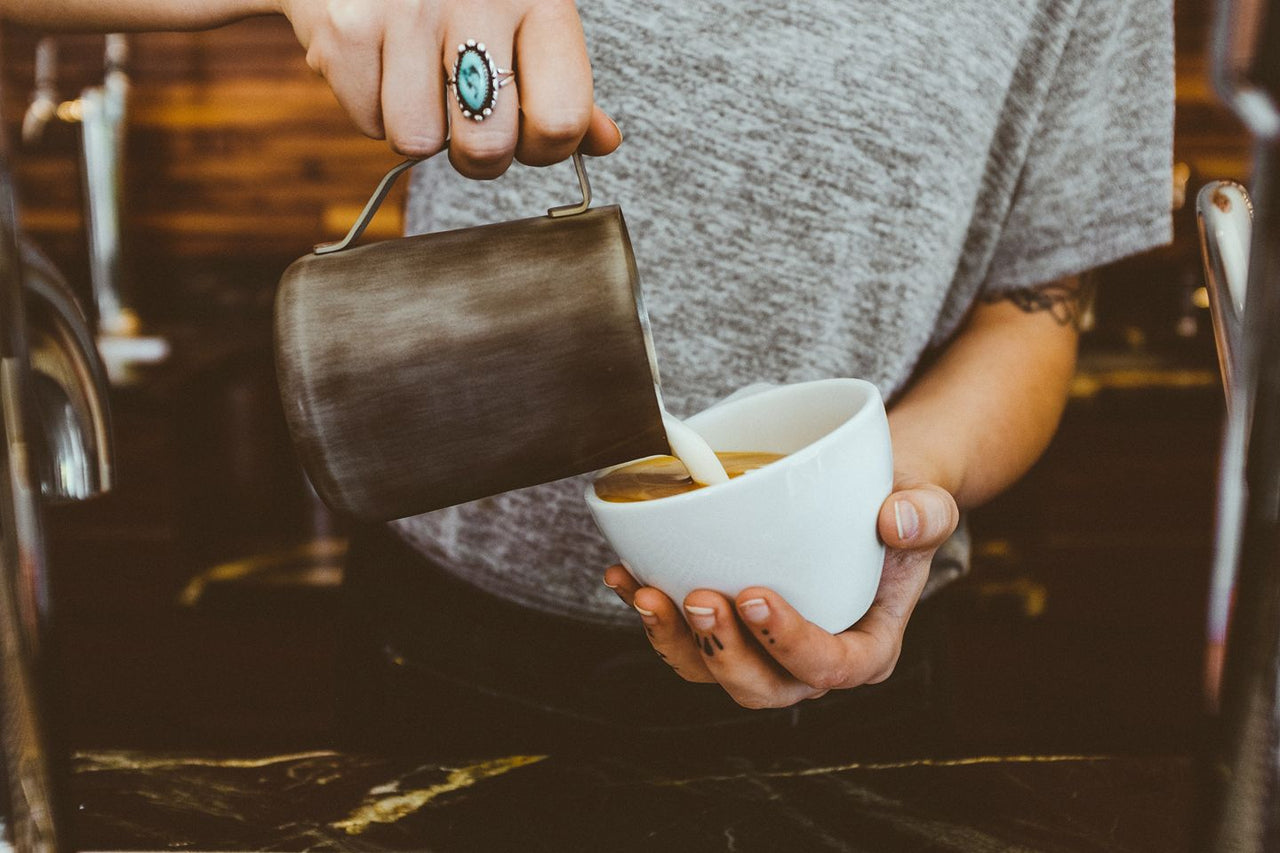coffee roasting, Education, note from the master
How Much Do You Know About Coffee Roasting? Part 1
August 09, 2014 | Caravan Coffee
coffee roasting, Education, note from the master
August 09, 2014 | Caravan Coffee
Dark roast. Light roast. Is it a question, or a statement?
Here is a common scenario in a coffeehouse: “I would like something bold and dark,” says the customer, and when the barista hands over the coffee, he adds sugar and milk before drinking.
The puzzled barista asks, “Why not drink it black?”
“Well, it tastes horrible that way!”, replies the customer, just as puzzled.
I recently asked a group of viticulturists with whom I was cupping, “Do people ever add sugar or milk to wine?”
“No,” they replied. “You’d lose the distinctive notes that tell you where the wine comes from!”
How are wine and coffee different? Is strong coffee always ashy–or can it have overtones of citrus? Can a dark roast show sweetness in the cup? Can a light roast have dark overtones? Do we always have to add milk and sugar to a dark roast just to make it palatable?
Your Mission… Should You Choose to Accept It
The ongoing endeavor of the roaster is to listen while the bean speaks its own native language. Every coffee will sound (taste) different from its neighbors, from other countries. To carry the analogy through, we don’t want to bring out English words when the bean is fluent in Spanish. After allowing speech, we should humble ourselves and learn to listen with our palates.
I am called a “Master Roaster”. Like a doctor, who swears the Hippocratic Oath to practice medicine honestly, and to cause no harm, being a roaster implies to me that I know each coffee’s origin and will manipulate the roasts to bring out its hidden excellence.
We Each Have Our Part to Play
There are three main levels in the chain of coffee: Farmer, Roaster, Barista. The farmer carefully manages the seed (picking ripe cherries only, drying certain numbers of hours, maintaining quality standards), then passes his handiwork along to the roaster, whose craftsmanship will either enhance or inhibit the susceptible seed (mainly through roast profiling–temperature, time, endothermic treatment), and the roaster passes his work along to the home or professional barista, whose attention to detail will either highlight the farmer and roaster’s work, or cause harm to the final cup. All three together complete the chain of specialty coffee, ending with a fantastic cup of coffee in our hands.
Check back next week to learn more about coffee roasting from Paul Allen!
The post How Much Do You Know About Coffee Roasting? Part 1 appeared first on Caravan Coffee.
